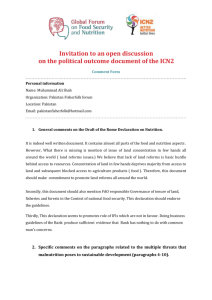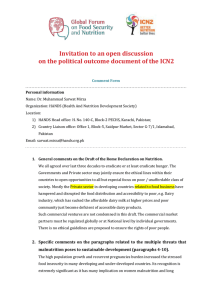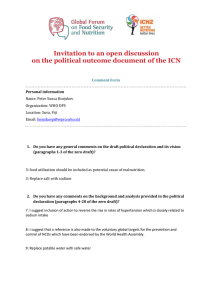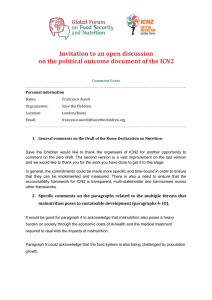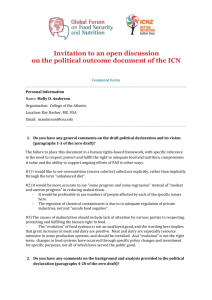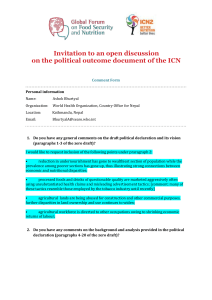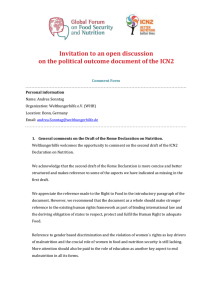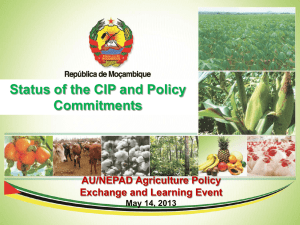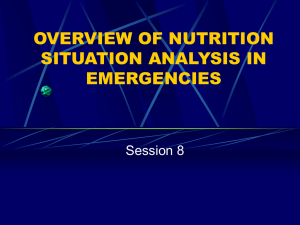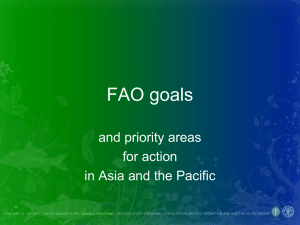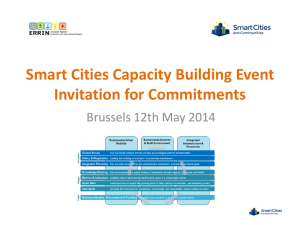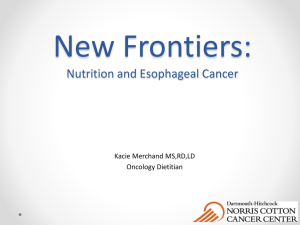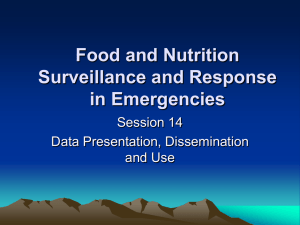Comments_UNSCN_WGNutCC
advertisement
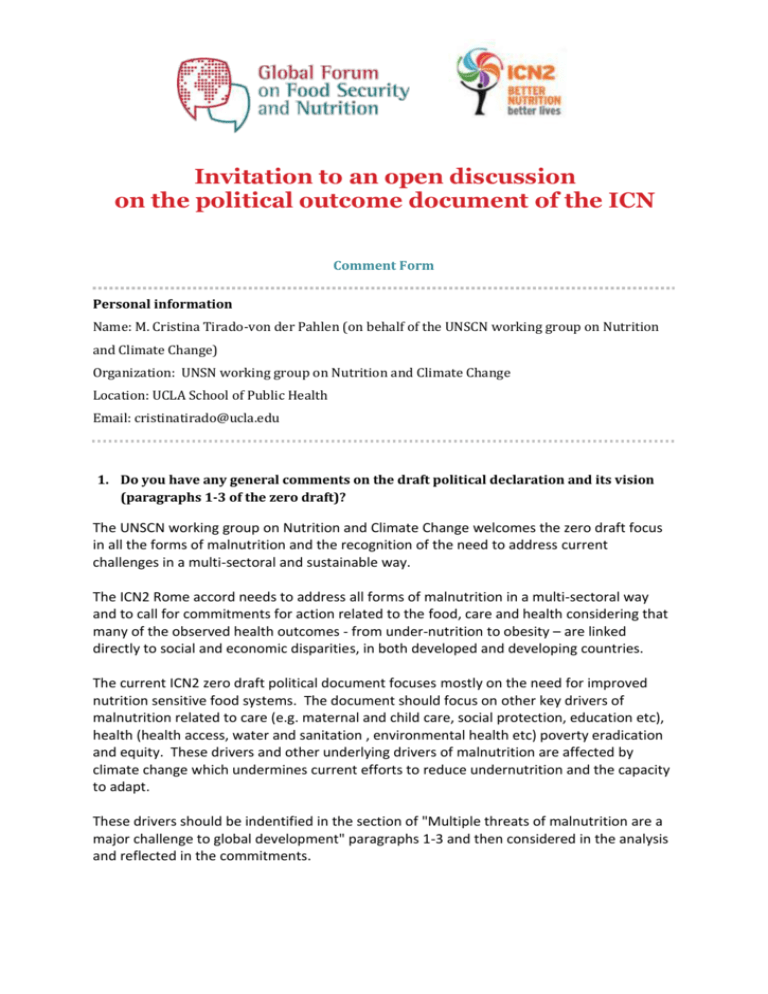
Invitation to an open discussion on the political outcome document of the ICN Comment Form Personal information Name: M. Cristina Tirado-von der Pahlen (on behalf of the UNSCN working group on Nutrition and Climate Change) Organization: UNSN working group on Nutrition and Climate Change Location: UCLA School of Public Health Email: cristinatirado@ucla.edu 1. Do you have any general comments on the draft political declaration and its vision (paragraphs 1-3 of the zero draft)? The UNSCN working group on Nutrition and Climate Change welcomes the zero draft focus in all the forms of malnutrition and the recognition of the need to address current challenges in a multi-sectoral and sustainable way. The ICN2 Rome accord needs to address all forms of malnutrition in a multi-sectoral way and to call for commitments for action related to the food, care and health considering that many of the observed health outcomes - from under-nutrition to obesity – are linked directly to social and economic disparities, in both developed and developing countries. The current ICN2 zero draft political document focuses mostly on the need for improved nutrition sensitive food systems. The document should focus on other key drivers of malnutrition related to care (e.g. maternal and child care, social protection, education etc), health (health access, water and sanitation , environmental health etc) poverty eradication and equity. These drivers and other underlying drivers of malnutrition are affected by climate change which undermines current efforts to reduce undernutrition and the capacity to adapt. These drivers should be indentified in the section of "Multiple threats of malnutrition are a major challenge to global development" paragraphs 1-3 and then considered in the analysis and reflected in the commitments. 2. Do you have any comments on the background and analysis provided in the political declaration (paragraphs 4-20 of the zero draft)? The document needs to address critical issues such as health, gender, equity, poverty reduction and human rights across the background, analysis and vision for global action to end all forms of malnutrition provided in the political declaration (paragraphs 4-20 of the zero draft). The co-benefits to health, nutrition and environment of sustainable food production, sustainable food consumption and food waste reduction should be outlined in the analysis and reflected in the commitments for action. When reaffirming the need for improved governance for more effective concerted actions by various key stakeholders across sectors (para 18) it is necessary to stress the urgent need for policy coherence between the agriculture, health and climate agendas. The group supports and reinforce the need for accountability in relation para 19: "The United Nations system must work more effectively together to enhance international cooperation and solidarity to improve nutrition and support national efforts to accelerate progress against malnutrition". We suggest to incorporate the rights angle taken by the UN Special Rapporteur on the right to food – see http://www.srfood.org/en/official-reports. In his recent final report the rapporteur includes a sector-by-sector list of recommendations which addresses key issues to be considered in the "Rome accord". The conclusions of his report stress the urgency of the matter and argue that “business as usual” will not do. 3. Do you have any comments on the commitments proposed in the political declaration? In this connection, do you have any suggestions to contribute to a more technical elaboration to guide action and implementation on these commitments (paragraphs 21-23 of the zero draft)? When committing for action the document needs to address critical drivers of malnutrition related to health systems and access, water and sanitation, environmental health, maternal and child care and feeding practices, education, social protection, equity etc. (paragraph 21). Making our food systems provide safe and nutritious food in a sustainable and resilient way is critical but complex and requires additional specific commitments for action to climate resilient and sustainable food systems including sustainability aspects of dietary patterns . The issues addressed in two final paragraphs (22-23) are very relevant and the document will benefit from elaborating more on the Decade of Action on Nutrition and the inclusion of targets, accountability framework and mechanisms. To implement a framework through which accountability and progress with achieving the targets and implementing these commitments can be monitored, consideration should be given to the need mechanism for sharing resources, expertise, and data in middle income and low income countries that lack surveillance systems, indicators and metrics. Please provide your comments in the appropriate fields relating to these commitments: 21. Commitment I: aligning our food systems (systems for food production, storage and distribution)to people’s health needs; Commitment II: making our food systems equitable, enabling all to access nutritious foods. Commitment III: making our food systems provide safe and nutritious food in a sustainable and resilient way; Commitment IV: ensuring that nutritious food is accessible, affordable and acceptable through the coherent implementation of public policies throughout food value chains. Commitment V: establishing governments’ leadership for shaping food systems. Commitment VI: encouraging contributions from all actors in society; Commitment VII: implementing a framework through which our progress with achieving the targets and implementing these commitments can be monitored, and through which we will be held accountable. 22. Commit to launch a Decade of Action on Nutrition guided by a Framework for Action and to report biennially on its implementation to FAO, WHO and ECOSOC. 23. Commit to integrate the objectives and directions of the Ten Year Framework for Action into the post-2015 global development efforts.
